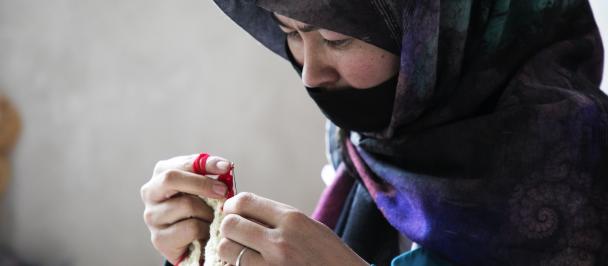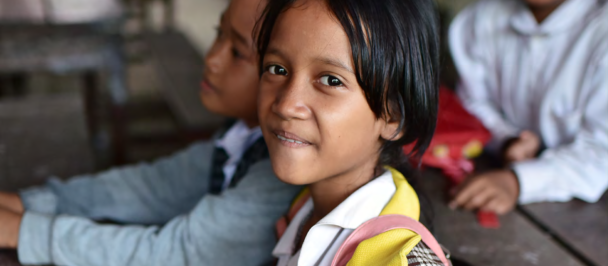Florence and her store / UNDP
For Florence Isihanua, the chicken came first.
After years of struggling to find a job or start a small business in the Solomon Islands, she felt poultry farming would be a profitable venture.
And it was.
As the chickens and eggs multiplied, her resources grew, she started to make a tidy profit. For five years her business flourished, until cheap chicken imports flooded the market. It was difficult to compete.
She still needed to provide for her family, so in 2011 she pivoted.
With four boxes of nappies made of a material that was hard to find in the country, Florence exploited a niche in the market for high-quality baby products.
Soon, the empty counters in her 40-square-meter Honiara shop were loaded with clothing and baby goods. In 2014, she opened a second branch in the city center and employed a staff of eight.
Today at 36, Florence, a mother of two, is an experienced entrepreneur who manages a successful retail business.
In a country where older men dominate the business landscape, she is an anomaly.
IumiWaka Training / UNDP
Women in Solomon Islands are more likely than men to experience challenges in starting a business such as: lower levels of education, financial illiteracy, and intimidation by officials. Gender norms and customs often leave women with limited control of resources, which makes it tougher for them to use assets such as land as collateral for loans and raise capital.
According to the World Bank’s Enterprise Survey data from 2015, only 12.8% of firms in Solomon Islands are owned by women — significantly lower than the 28% average for East Asia and the Pacific region.
Banking facilities are inaccessible for many women, they frequently face discrimination in securing loans and other forms of credit and often lack the necessary identification. Confusion about tax obligations also prevents women from transitioning from small-scale enterprises to formal businesses.
Women have a harder time resisting pressure from wantoks – close friends -- and male relatives who pressure them for money or free goods, hindering savings and the reinvestment necessary to build a business.
Although Florence was able to secure her first shop without bribes or hassles, she said acquiring commercial space is typically contingent on who you know, and how much you pay them under the table. It has been a tough climb, but along the way she has learned critical lessons: earning respect in the business community takes convincing and sharp negotiating skills.
Florence at Design Workshop / UNDP
Now, Florence wants to help others like her to navigate the business world, especially youth.
In a culture that values age and experience, the potential of youth to pursue creative ventures is often overlooked.
In Solomon Islands, around 70% of the population is under 34, and most of them are either unemployed or inactive.
Solomon Islands’ youth policy prioritizes employment and entrepreneurship opportunities. To explore how to design a co-working space to facilitate youth entrepreneurship Florence and several other young entrepreneurs participated in a workshop held by the Young Entrepreneurs Council Solomon Islands (YECSI) and UNDP.
Young Entrepreneurs Design Workshop / UNDP
The result: IumiWaka – a resource center launched in 2019 to empower youth so that they can collaborate and navigate the turns of business development. Florence is excited to share ideas here to help others progress from small, informal enterprises to successful companies. “I am always learning and also happy to share my experience with younger ones,” she said.
“I have to make myself heard in the business community in Honiara, which is male dominated.”
By offering office facilities, regular training and opportunities to network with peers and experienced members of the business community, the co-working space will help youth overcome common barriers to establishing a business.
The project especially aims to address challenges facing young business women, and how to get them engaged in IumiWaka. The prevailing mindset is that a formal business requires more planning, capital and other resources, than they can manage.
With the IumiWaka co-working space as a ladder to the higher ranks of Solomon Islands’ business sphere and inspiring guides like Florence, the goal is to have more youth and women become prosperous entrepreneurs.
Words: Merinda Valley, Communications Specialist, UNDP Solomon Islands & Tomoko Kashiwazaki, Communications Specialist, UNDP Pacific Office in Fiji
Originally published in the Gender Equality Newsletter Vol.3
PDF version of the Newsletter - click here

 Locations
Locations






